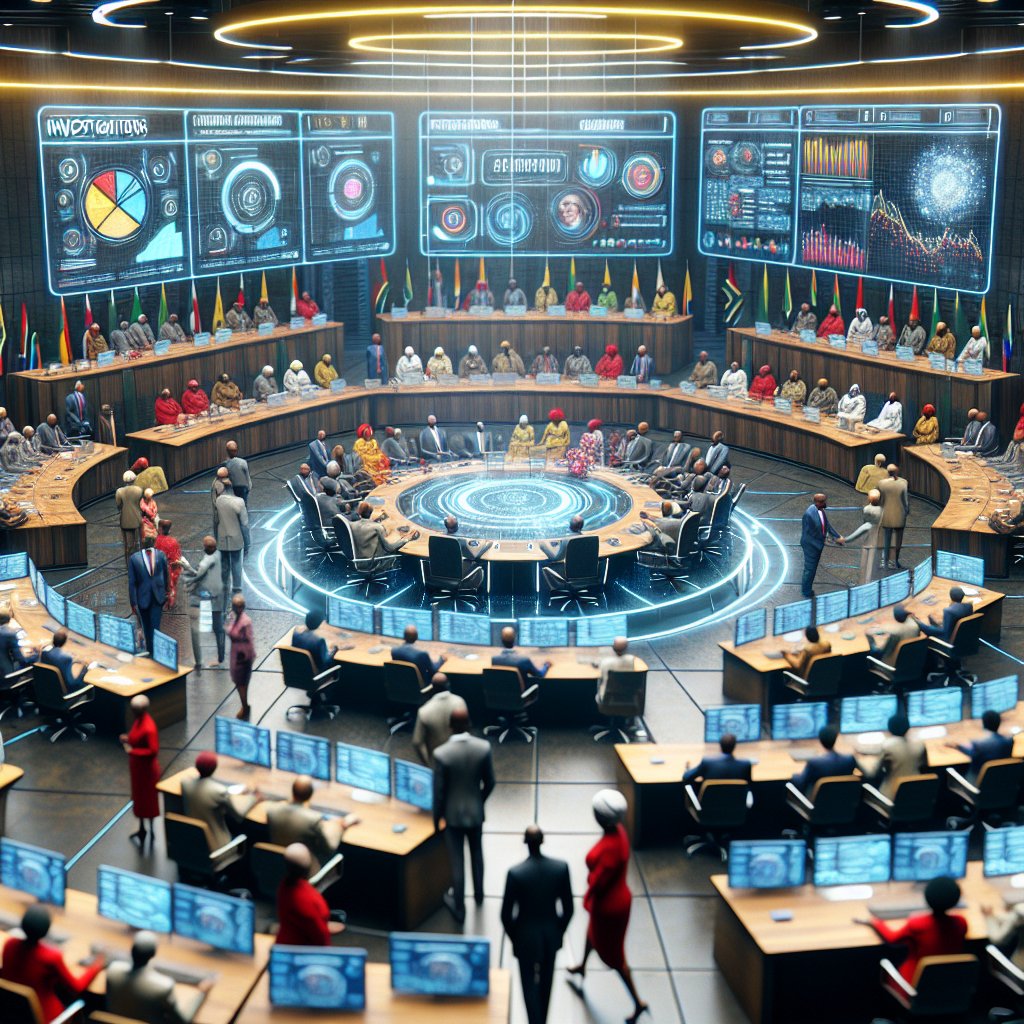Image created by AI
ANC Integrity Commission Sets Sights on Gigaba, Mahlobo, and Frolick Amid State Capture Allegations
The African National Congress (ANC), South Africa's leading political force, is poised to embark on a crucial phase of self-correction and accountability. The party’s Integrity Commission is gearing up to investigate three of its members, who have been implicated in the country's infamous State Capture saga. This marks a potential turn of the tide in the party’s declared intent to rid itself of the entrenchment in corruption, as it seeks to regain the public's waning faith.
Those being brought under the microscope are three notable political figures: former ministers Malusi Gigaba, David Mahlobo, and Cedric Frolick. The political journey of each is marred by allegations of graft and misconduct during the era shadowed by endemic corruption associated with former president Jacob Zuma and the Gupta family.
Gigaba's involvement as outlined in the Zondo Commission's findings, particularly the controversial testimony by his ex-wife claiming he received cash from the Guptas, has cast a long shadow over his integrity. Although Gigaba has refuted these statements, the clouds of mistrust persist.
On the other hand, Mahlobo, currently in a deputy ministerial role, faces accusations of judicial interference and corruption during his time as a minister of state security. Allegations of a project to bribe judges have tainted his reputation, despite his denials.
Chair of the House committee, Frolick, has been implicated for his alleged 'dodgy dealings' with the firm, Bosasa. His alleged facilitation of undue benefits to the company presents a condition of connivance that is unsettling for the ANC's image.
The ANC's resolve to bring these individuals to account ahead of the re-scheduled 29 May general election came with some resistance, as the concerned members declined calls to remove themselves from party lists. Nevertheless, the ANC's secretary-general Fikile Mbalula has reactivated the committee’s intent to instill disciplinary measures, reassuring veterans like Snuki Zikalala of the party's corrective course.
This announcement adds weight to recent statements by ANC leaders, including President Cyril Ramaphosa, who has underscored the importance of internal ethical conduct as pivotal to the party's restoration in public standing.
While the focus is currently fixed on Gigaba, Mahlobo, and Frolick, the shadow of the State Capture inquiry looms over other leading ANC figures as well. The likes of Mineral and Petroleum Resources Minister Gwede Mantashe, Minister in the Presidency Khumbudzo Ntshavheni, and former minister Nomvula Mokonyane have also faced allegations linked to the corruption probe.
The Integrity Commission's activities unfold in a broader context of promised party renewal and the ANC's attempt to sharpen its image. Investigations and subsequent actions herald a much-anticipated shift towards a transparent, accountable leadership ethos. However, the broader implications for the party and its relationship with South African society hinge upon the thoroughness and genuine effect of these processes.
Amidst these efforts, it remains to be seen whether the recommended disciplinary actions will materialize into meaningful change or simply be a performative exercise. The ANC's initiative to clean house has long been awaited, and the outcomes of these investigations could signal a decisive moment for South Africa's political landscape.










